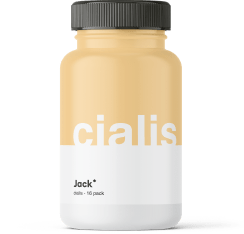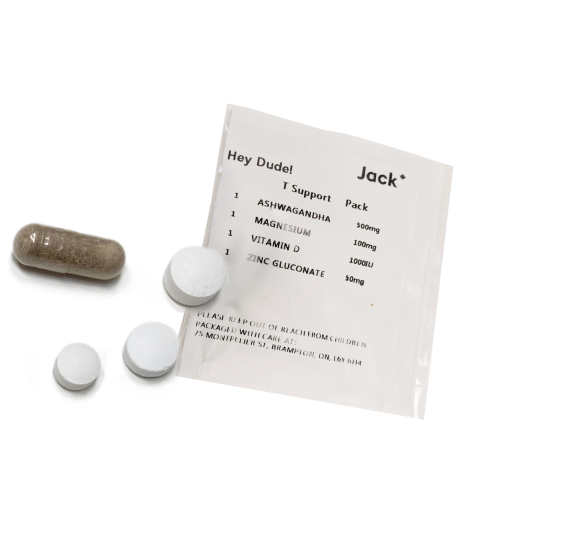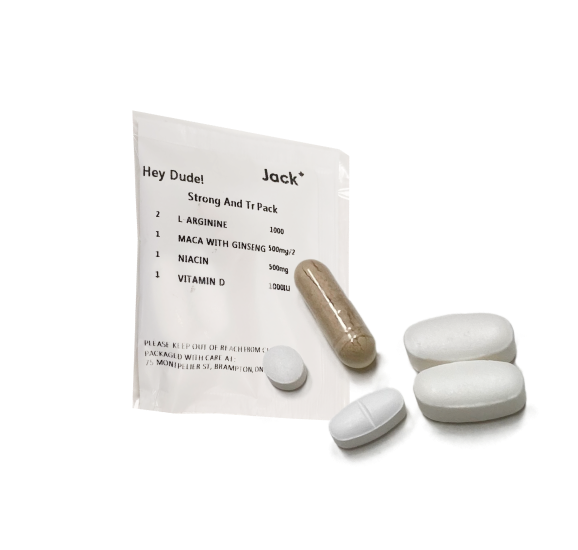Suffering from low energy? Hair loss? Decreased libido? You may have low hormones. With our expert medical team you can get tested, get diagnosed, and get solutions. Soon, you’ll be feeling like you again.
Wondering if your hormone levels have dipped? Get tested to get answers, get solutions, and get better.
Transfer your Rx Add to Cart After filling out a short online consult, we email you instructions on how to do your tests. When we get the results, we contact you to book a virtual appointment and review the results. If you qualify for male hormone therapy, you place an order and begin treatment!
What is Male Hormone Therapy
Male Hormone Therapy is a medical treatment designed to restore hormone levels in individuals who have low levels
crucial hormones in the human body, responsible for the development of male sexual characteristics, maintenance of muscle mass, bone density, and influencing mood. Low levels can result in symptoms such as reduced libido, fatigue, loss of muscle mass, and bone density, among others.
Male hormone therapy aims to alleviate these symptoms by increasing hormone levels in the body to a normal range, using various delivery methods such as injections, patches, gels, or pellets.
How Does Male Hormone Therapy Work?
Male hormone therapy works by supplementing the body’s natural hormone levels to bring them into the normal range, thereby mitigating the symptoms associated with low hormone levels. This is achieved through various forms of hormone delivery systems, including transdermal patches, gels applied to the skin, injections, and subcutaneous pellets.
These methods ensure a steady introduction of hormones into the bloodstream, aiming to mimic the body’s natural rhythms of hormone production. The therapy is tailored to the individual’s needs, with dosages adjusted based on periodic blood tests to monitor hormone levels and ensure they are maintained within a therapeutic range.
By restoring hormone levels, male hormone therapy can help reverse the effects of hypogonadism, such as decreased muscle mass, fatigue, low libido, and bone density loss, improving overall quality of life. The effectiveness of male hormone therapy and the choice of treatment depend on careful evaluation and ongoing management by healthcare professionals to optimize outcomes and minimize potential side effects.
Benefits of Male Hormone Therapy
The benefits of male hormone therapy are multifaceted, addressing both physical and psychological aspects of health in individuals with low hormone levels. These benefits, when managed correctly under medical supervision, can significantly improve the quality of life and overall well-being of individuals undergoing the therapy.
Improved Mood and Well-being
Male hormone therapy has shown a notable positive impact on the mood and overall well-being of individuals with low hormone levels. By restoring hormones to normal levels, MHT can significantly reduce symptoms of depression, anxiety, and irritability, leading to an improved sense of mental health and quality of life.
Many patients report a noticeable uplift in their mood, increased energy levels, and a more positive outlook on life following the initiation of therapy.
Increased Muscle Mass and Strength
One of the most sought-after benefits of male hormone therapy is its ability to significantly increase muscle mass and strength. MHT plays a pivotal role in muscle protein synthesis, a fundamental process in muscle growth and regeneration.
By supplementing the body with hormones, MHT can counteract the muscle wasting and weakness associated with low hormone levels, leading to improvements in physical performance and body composition.
Enhanced Libido
Male hormone therapy has a profound impact on enhancing libido in individuals experiencing low hormone levels, a common issue that can diminish sexual desire and satisfaction.
Hormones can be intricately linked with sexual function, and its deficiency can lead to a decreased interest in sexual activity. By normalizing hormone levels, MHT effectively revitalizes sexual drive and can improve erectile function, thereby restoring a healthier sex life.
Better Cognitive Function
Male hormone therapy has also been associated with improvements in cognitive function, particularly in areas such as memory, concentration, and executive functioning. Hormones are believed to play a role in neuroprotection and the functioning of neural pathways that are crucial for cognitive processes.
Common Male Hormones Therapies
Common hormone therapies encompass a variety of delivery methods tailored to meet individual preferences and medical requirements. Each of these therapies has its own set of benefits and considerations, allowing for personalized treatment plans to effectively manage symptoms of low hormones while minimizing side effects.
- Gel (Compounded Gel or Cream)
- Oral
- Injectable
- Transdermal Patches
- Subcutaneous Pellets
- Nasal
We check what your insurance covers, prescribe your treatment, and get it delivered (for free!) right to your door.
Understanding the Cost of MHT Canada
In Canada, the cost of male hormone therapy can vary widely depending on several factors, including the type of hormone formulation prescribed, the dosage, the frequency of administration, and the healthcare setting.
While some costs may be offset by health insurance, the financial commitment of NHT requires careful consideration and planning by individuals looking to pursue this treatment in Canada. Some of the common costs to consider are:
- Cost of Initial Consultation
- Price of hormone Medications
- Follow-up Appointment Fees
- Laboratory Test Expenses
- Insurance Coverage and Out-of-Pocket Costs
FAQ
What is MHT? How is it different from steroids or doping?
Male hormone therapy is a prescription medication therapy for low hormone levels, to restore those levels to a normal range. It comes in many forms: pills, topical gel, injections. Pills can have negative side effects and injections aren’t everyone’s cup of tea, so we prescribe a gel for an easy and simple treatment. Just rub it onto your skin once a day, and it gives you a measured dose of hormone that will absorb naturally into your system.
While hormones medically fall under the category of steroid, illegal doping and MHT could not be more different. MHT is medically supervised, authorized for sale by Health Canada. Illegal doping uses far higher doses of hormones, and because it’s not Health Canada regulated anything can be in them…and often is.
MHT is prescribed only to those who need it, in the amount that is healthy for you. So you can get back to your normal.
When does it start working? Does it work for everyone?
Every person is different, but for most the effects can be felt consistently after the first 3 months. Sex drive and mood are usually the first to improve, along with higher energy levels. Decreasing weight gain and improving muscle takes longer to see, though if combined with diet and exercise, can be achieved earlier. Bone density also improves around this time and is of course the hardest to notice, but is well worthwhile; it lowers the chances of getting painful issues like osteoarthritis as you age.
Every three months, we follow up with you to see how it’s going! We give you another lab requisition form so you can send us another blood sample, which our medical team then reviews to check your levels, ensure everything is good, and determine if your dosage needs to be adjusted.
What do the other tests do?
Checking your levels can include more than just checking your hormones There are other biomarkers that may be causing your symptoms, whether that’s hair loss, low libido, fatigue, or others. Keeping an eye on these levels is a good insurance policy for good health.
Here’s a quick breakdown:
Vitamins in general are, unsurprisingly, important for a healthy body. They help your body function properly, making healthy hair, eyes, skin, bones, you name it. It keeps your mood stable and helps your immune system resist illness. In fact, they do so much that deficiencies in any vitamin can cause a variety of symptoms. Given how many vitamins our body uses, taking a test to figure out what’s coming from where is the easiest way to untangle it.
If you live in Canada, there’s one vitamin it’s particularly good to keep an eye on: Vitamin D. Vitamin D keeps our bones strong, boosts the immune system, and helps keep our mood stable. All those things are weakened at lower levels, increasing risk of osteoarthritis, depression, and susceptibility to illness. We get vitamin D primarily from sunshine, which the great north doesn’t always get a lot of. That’s why Canadians’ odds of being vitamin D deficient are, in our humble opinion, ridiculously high. By which we mean 70 – 97% high.
Lipid & blood glucose imbalance Lipids are an essential part of cellular development, hormone balance, and vitamin absorption. Low levels can reduce your ability to absorb vitamins and nutrients, and lower your production of essential hormones – hormones like testosterone. High levels can cause high levels of LDL cholesterol, which increases your risk of heart and liver disease.
Glucose is blood sugar, and one of our primary sources of energy. As such, keeping it level is a priority. High levels can be indicative of diabetes, metabolic syndrome, and other disorders. Uncontrolled levels increase your risk of heart attacks, kidney disease, and stroke.
How are these tests collected? What happens after?
All of the tests we offer use a blood sample for analysis. After you order the tests you want and fill out our short online consultation so we’re sure there’s nothing big that makes you ineligible for treatment we email you a lab requisition form. This form tells the lab that takes your sample what test to do.
After the sample is analyzed, the lab sends the results to us and our team of specialists looks it over. Once reviewed, they send you a message in your Jack account to book a virtual appointment to go over the test results, and what your treatment recommendations are. Simple as that.
Am I covered by insurance?
Our medical team’s review of your tests may be covered if you have a health spendings account (HSA). You can check with your plan provider about your HSA for more info.
TRT treatment may also be covered by your insurance. Coverage varies depending on your plan type, ranging anywhere from 10% to 90% coverage. Once your TRT prescription is processed by the pharmacy, a team member will reach out to you to discuss how much is covered.
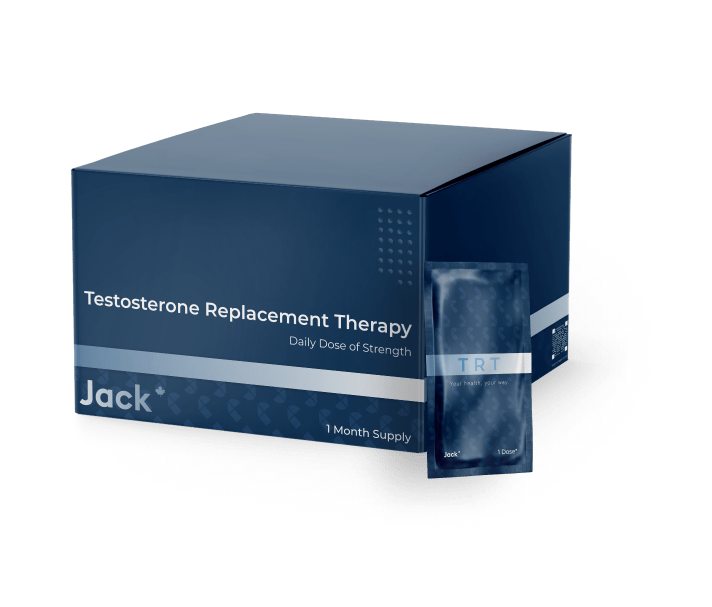




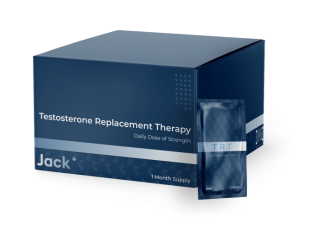
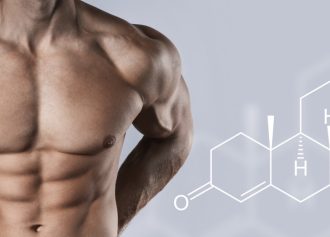
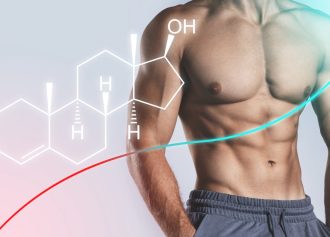
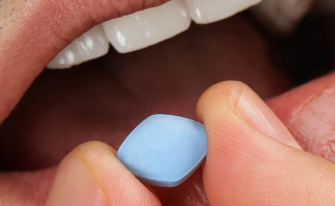




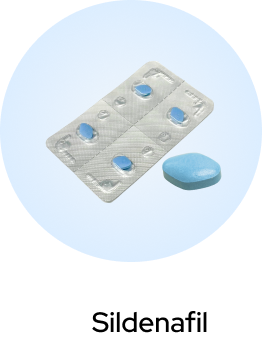
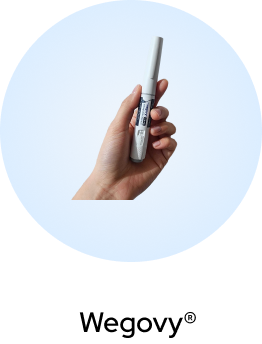
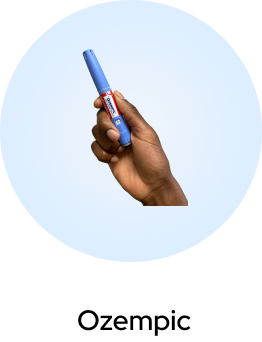


 (US)
(US)